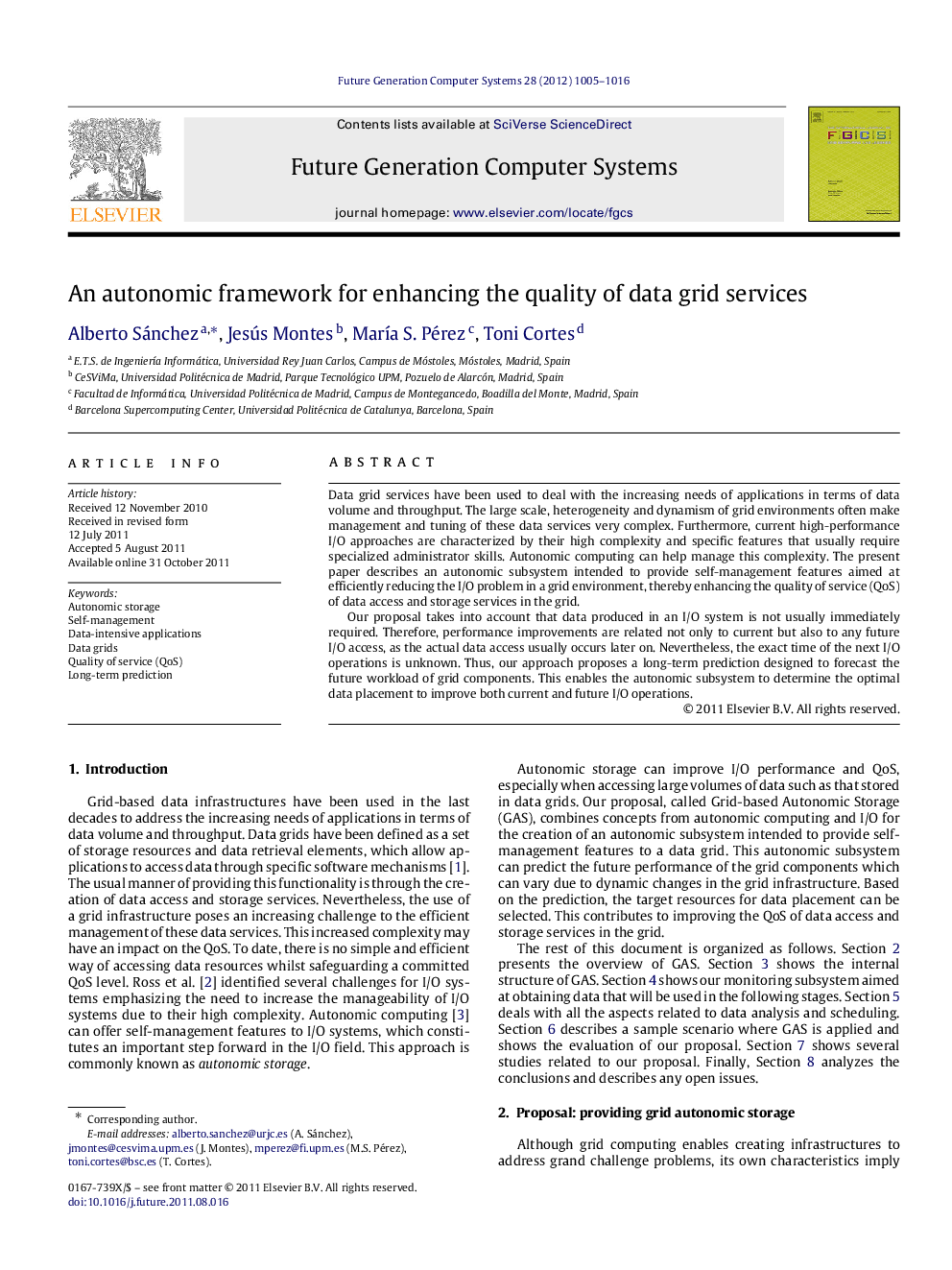| Article ID | Journal | Published Year | Pages | File Type |
|---|---|---|---|---|
| 425996 | Future Generation Computer Systems | 2012 | 12 Pages |
Data grid services have been used to deal with the increasing needs of applications in terms of data volume and throughput. The large scale, heterogeneity and dynamism of grid environments often make management and tuning of these data services very complex. Furthermore, current high-performance I/O approaches are characterized by their high complexity and specific features that usually require specialized administrator skills. Autonomic computing can help manage this complexity. The present paper describes an autonomic subsystem intended to provide self-management features aimed at efficiently reducing the I/O problem in a grid environment, thereby enhancing the quality of service (QoS) of data access and storage services in the grid.Our proposal takes into account that data produced in an I/O system is not usually immediately required. Therefore, performance improvements are related not only to current but also to any future I/O access, as the actual data access usually occurs later on. Nevertheless, the exact time of the next I/O operations is unknown. Thus, our approach proposes a long-term prediction designed to forecast the future workload of grid components. This enables the autonomic subsystem to determine the optimal data placement to improve both current and future I/O operations.
► Data grids are a suitable solution for modern distributed storage needs. ► Data grid autonomic management helps to handle the system complexity. ► Resource behavior modeling and prediction can help improving data access QoS. ► We present an autonomic data grid solution with self-optimizing capabilities.
